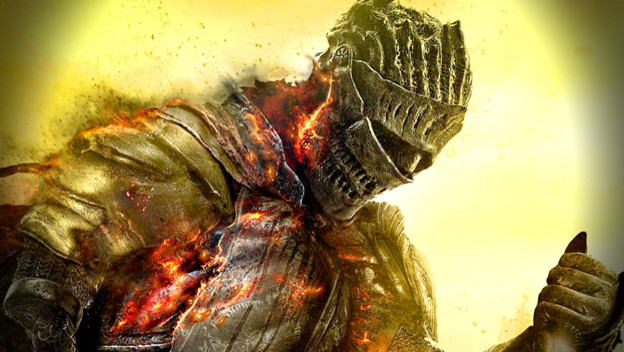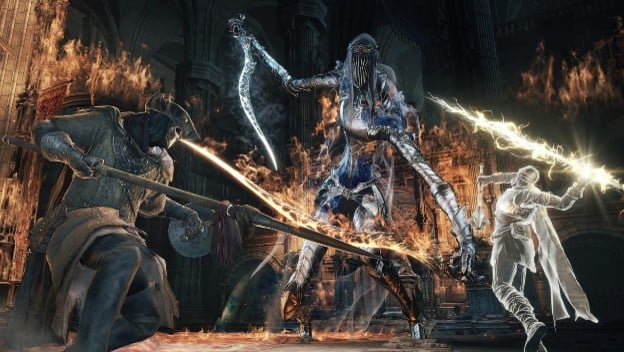Though Dark Souls III looks even more beautiful than I had dreamt it would, I hope that the series director, Hidetaka Miyazaki, did not create a game too difficult to enjoy. A game can be challenging, but for a game to force the player to fail is unfair.
A challenging game is one that obeys its own rules, has logical options and tools, is forthcoming with consequences, and has a well-paced difficulty curve. In order to obey its own rules, a game must first inform the player what those rules are. This is usually done in the tutorial part of the game – something the original Dark Souls does have, however subtle it might be to the inexperienced gamer. The Dark Souls tutorial is when the player is making their way out of the Northern Undead Asylum. Here, the game presents a relatively easy setting and a few enemies. First of all, the enemies do not overwhelm the player with numbers or sky-high HP. Second, the enemies are positioned in such a way as to give the player plenty of warning before they attack. This sets the rules for the distance an enemy will attack the player and mechanics of basic combat.
In addition, the tutorial teaches the player how the setting affects enemies and combat. For example, that enemies like to pounce on the player from behind corners. Or that the wide arc of a great sword is not nearly as effective in a narrow hall as a spear might be. Such weapon logic leads into a challenging game requiring logical options and tools. Every game has different world physics and the player must adapt to them. If a spear functions better than a sword in a narrow hallway, then the player can switch their weapons accordingly. Informed consequences follow this logic as well. For example, the sword will lose attack points if struck against stone repeatedly. A well-paced difficulty curve is something Dark Souls does quite aptly. The game teaches the player which warnings mean an imminent attack and how to prevent it by providing increasingly difficult enemies and settings.
A punishing game is one that does not comply with its own rules and logic. For example, in Dark Souls II, there are occasions where enemies will kill you even though you dodged their attacks, or they will acquire the sudden ability to lock on and attack until you die. This, simply put, is an unfair punishment. It can make dying feel like a pointless rewind instead of an opportunity to try something new. Perhaps it was to remind the player that they are not infallible, but I believe Dark Souls achieved that more successfully by punishing recklessness, rather than vigilance. Frankly, a punishing game is frustrating and does not teach the player anything except how to rage quit. Such unfair logic should apply to falling off cliffs, not boss fights.

Nonetheless, if Dark Souls III makes the same mistake as Dark Souls II, fans are in for some disappointment. Unfortunately, I have yet to find evidence that the upcoming game is not punishing. The initial demo was, after all, dialed down to help less experienced players through the levels. That does not give me hope. However, judging by the design (a beautiful combination of Bloodborne and Dark Souls ) and that it is Miyazaki heading the team rather than Tomohiro Shibuya and Yui Tanimura (who directed Dark Souls II ), I’m optimistic. Just the same, let us hope that Dark Souls III takes the best parts from Dark Souls II and not the worst.
